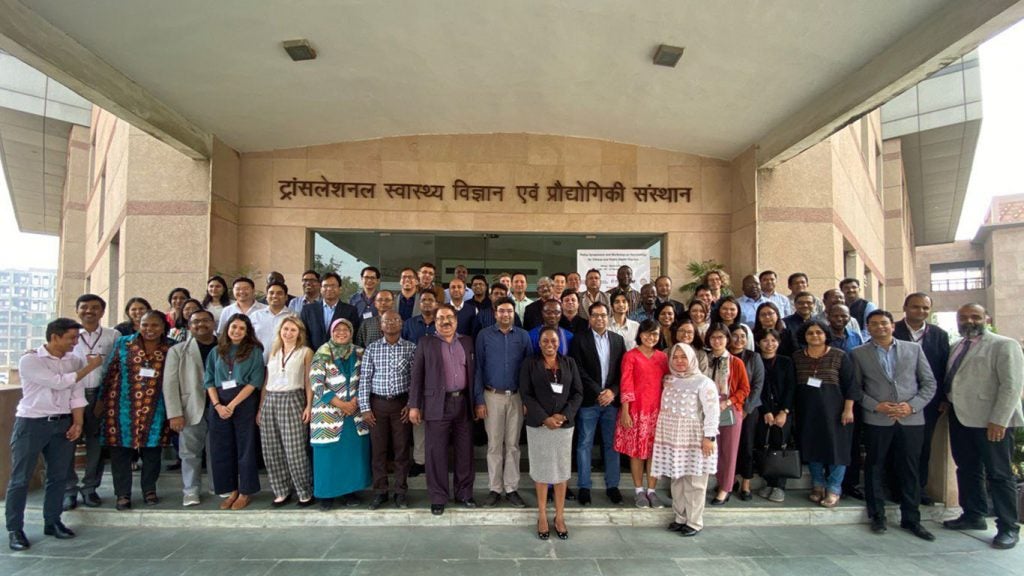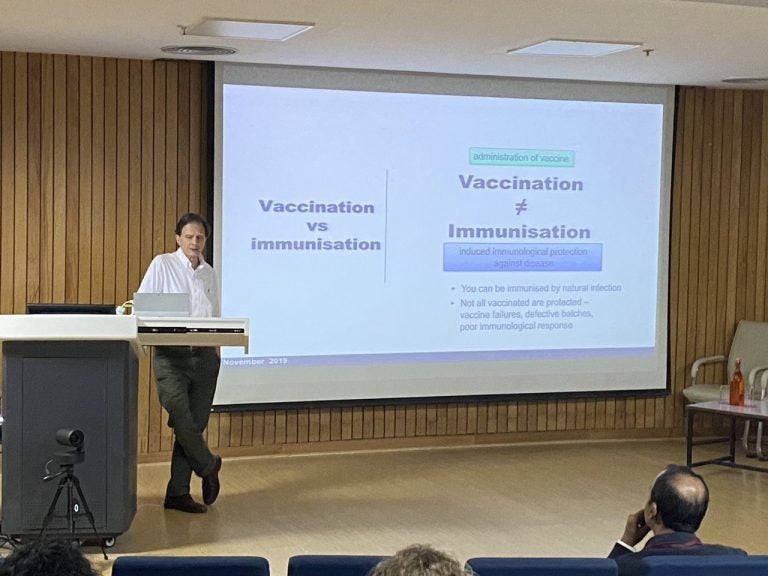
Vaccinology for Clinical and Public Health Practice: Policy Symposium and Workshop
Vaccines are the most effective tool for prevention of many infectious diseases and are often a highly cost-effective way to make drastic mortality and morbidity reductions. Planning the effective use of vaccines requires a new generation of public health professionals with multi-disciplinary skills who can understand issues around the immunological mechanism, safety, efficacy, effectiveness, population impact, effects on microbiological ecology, delivery, cost-effectiveness and public trust of vaccines. Developing capacity within LMICs for research and for the institutionalization of evidence-informed policy on immunization is increasingly important as countries look to the future beyond Gavi support when LMICs must govern and finance immunization policies independently in an effective and financially sustainable way.
To this end, a short course on Vaccinology for Clinical and Public Health Practice was held in Faridabad, India on 18th – 20th Nov 2019 at the Translational Health Science and Technology Institute (THSTI). This course was jointly organised by the Saw Swee Hock School of Public Health (SSHSPH), the London School of Hygiene & Tropical Medicine (LSHTM), the Health Intervention and Technology Assessment Program (HITAP) Thailand, THSTI, and the Jawaharlal Institute of Postgraduate Medical Education and Research (JIPMER).
The successful event was attended by over 60 participants from 10 countries, who all attended the policy symposium on the first day and the three-day workshop that followed thereafter. Nineteen distinguished speakers from around the world participated in both symposium and workshop, sharing their expertise on vaccine related subjects and rich policy experience from their home countries. Key highlights include the role-playing activity organized by Prof. David Heymann from LSHTM, infectious disease modelling exercise led by Prof. Mark Jit from LSHTM and all the active and lively discussions thanks to the participants who were quite expressive and proactive in raising questions.
The symposium and workshop were well-received by participants.
“I think the workshop is very useful; it was structured in a very understandable way. The symposium gave me a new perspective of the challenges in other countries. There were a lot of lessons learned that can be implemented while engaging with the Ministry of Health in Indonesia, since we collaborate very closely with them.” said participant Isti Hanifah from CHAI Indonesia. Brian Asare from the Ministry of Health Ghana added that “I was quite surprised by how comprehensive content structure cuts across different topics, from health economics, fundamental vaccine sciences and supply chain issues, all kinds of perspectives so far as vaccines are concerned are included, despite the short duration of the training.” Nidhi Bhatnagar from Maulana Azad Medical College, India shared her positive experience from the workshop: “It was an amazing experience that was spread over four days. I really learned a lot; it was quite intensive and rigorous but informative. We walked through the journey of how vaccines are introduced and the technicalities behind it, how do vaccines work in community, etc. and all the speakers were amazing – it was a beautiful journey.”
This article was written by Dana Bayani, Research Associate, HIPER.



